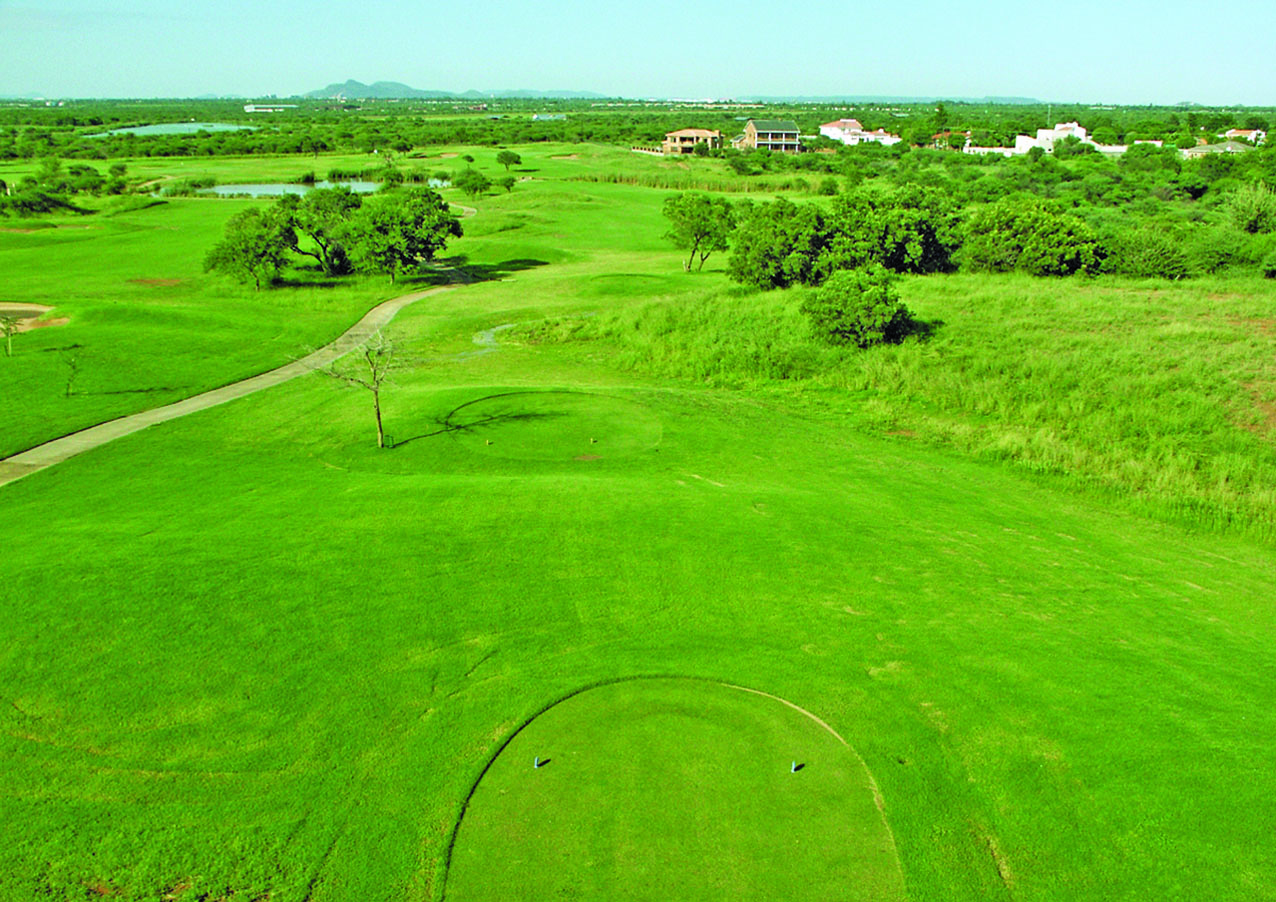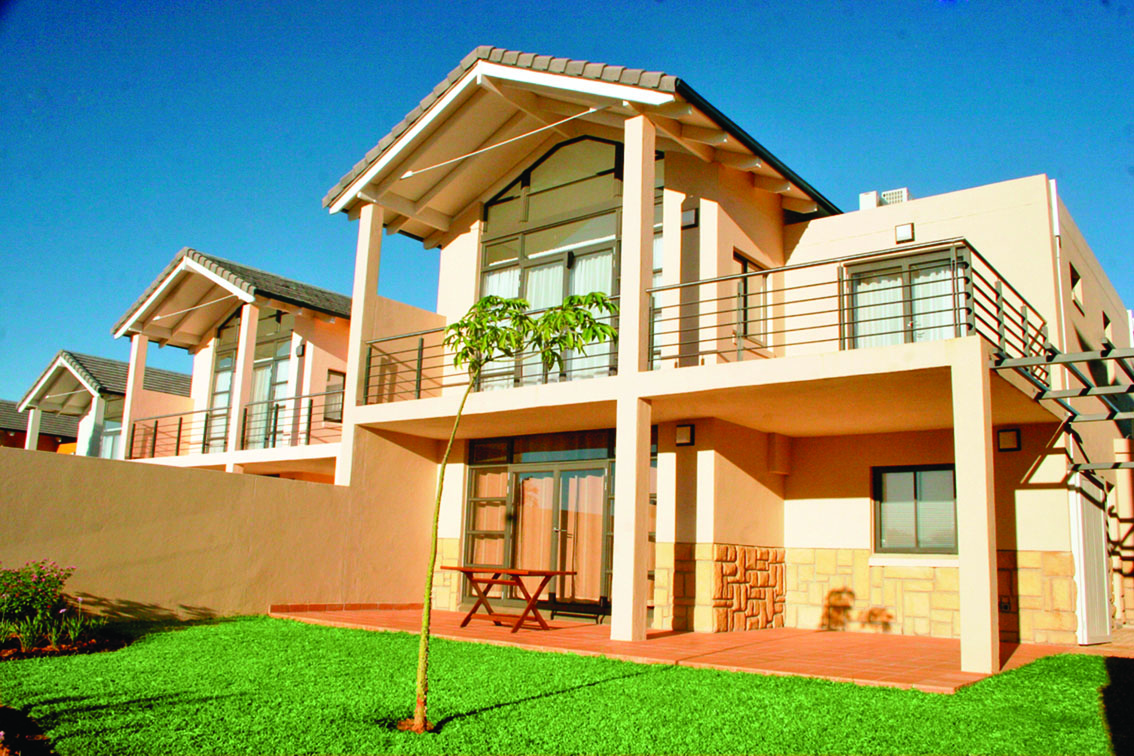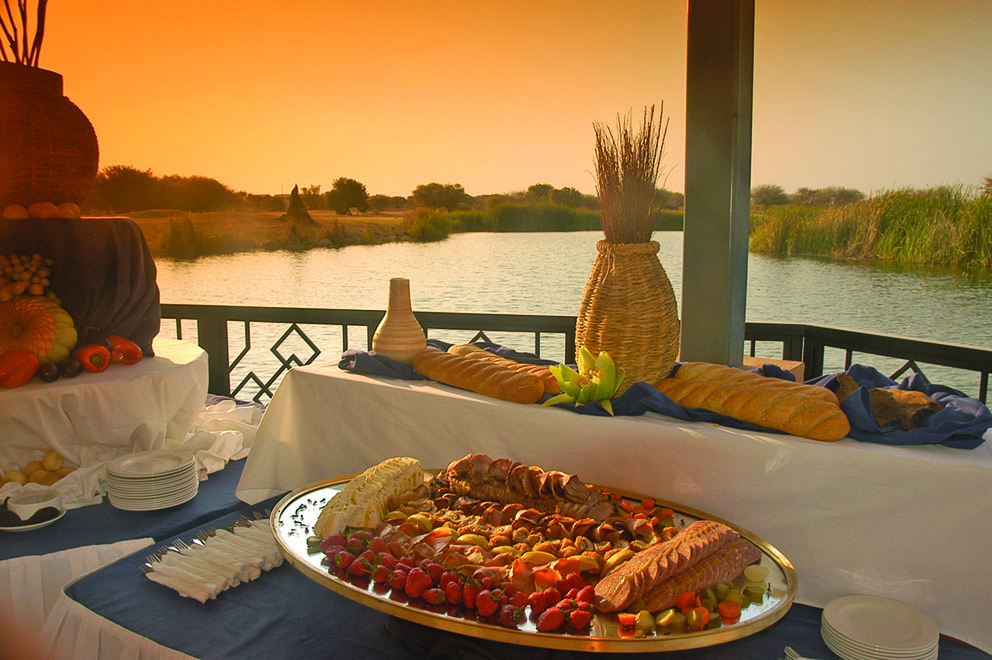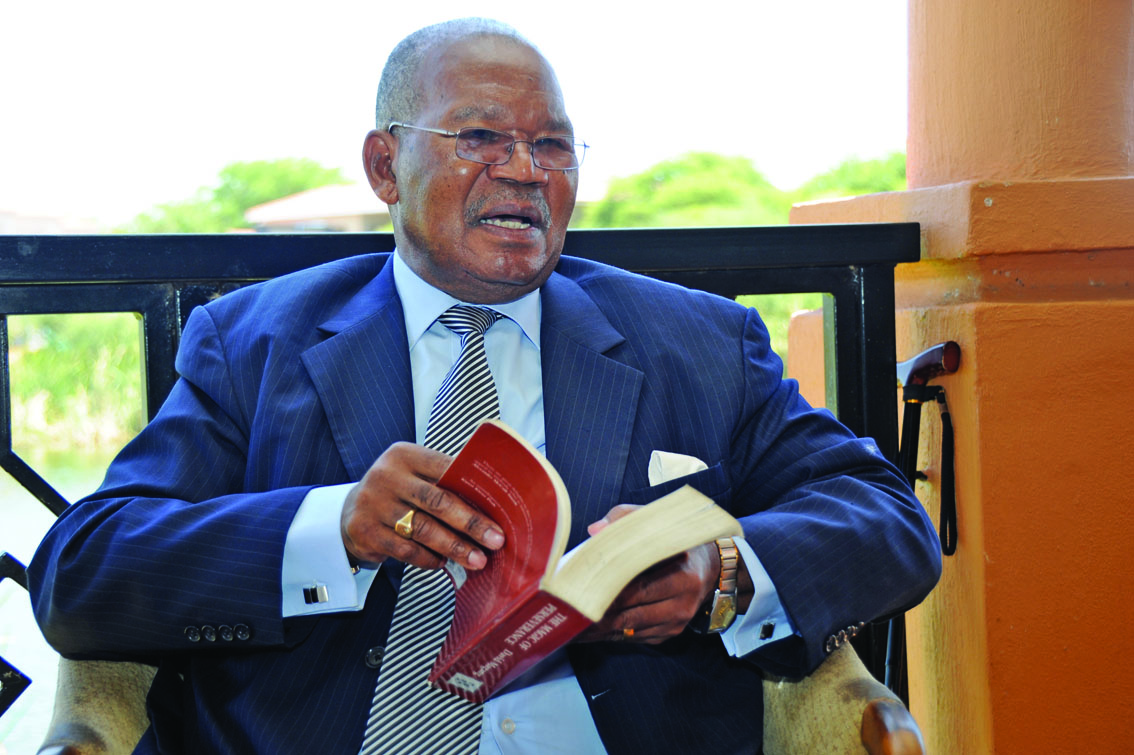Phakalane Soars
Source : Kutlwano
Author : Idah Basimane
Location : Gaborone
Event : Interview
In the opinion of one of the residents Phakalane, Billy Sekgororwane, the suburb is “quiet, peaceful, has fewer queues at banks and shops, and is by far crime-free.” In fact, Sekgororwane, a general manager at Multi-Choice Botswana, says his stay at the posh suburb is out of necessity than opulence. Another thing, says Sekgororwane, is that the daily traffic noise that characterises Gaborone does not give them sleepless nights. “The only clatter we hear is that of trains that pass nearby every day,” he says.
Incidentally, the Gaborone/Francistown railway line runs along the western side of Phakalane. What’s more, buying a plot in Phakalane is trouble-free as there are fewer queues, something that is uncommon in other towns. “You only have to point at the plot you want and you get it, that is as long as you have the money,” says the Multi-choice official. In support, BEDIA’s Kgakgamatso Moloi, another resident of Phakalane, says buying a house here has been an investment. Moloi, who previously stayed in a flat in Gaborone, says he needed an ideal world where he could raise his children decently, and Phakalane provided the answer. “At the flat there was always so much noise it was not easy for one to live their own life,” he says, adding that on hearing about the sale of plots at Mmokolodi and Phakalane, he decided Phakalane was more appealing.
Despite all the positives associated with Phakalane Estates, Moloi argues that there is no place without a negative side. He says some people have chosen not to live in Phakalane mainly because it is expensive. The place is also fairly far from Gaborone (15km), where most of them work, and where most of their children go to school. Another constraint, says the man from BEDIA, is the traffic jam the residents of Phakalane usually encounter especially at pick hours when driving to and from work. He says he has appealed to the relevant authorities to seek alternative routes of entering the richly township. Both Sekgororwane and Moloi concur that life in Phakalane is very individualistic; people mind their own businesses and rarely visit others, except by appointment. That Phakalane is really appealing is not in doubt, and perhaps, a dream for a place of grandeur was what spurred David Ntsimele Magang, a former politician and cabinet minister, to buy a piece of land from a certain George Sim back in 1976.
Though originally called Sowenflat, Magang decided he would give his new acquisition a new name, hence Phakalane Estates. Incidentally, the name Phakalane was derived from the Grey Goshawk - a member of the eagle bird family – that used to reside in the farm. Regrettably, the mushrooming township led to inevitably disappearance of the birds, says Magang in his autobiography titled The Magic of Perseverance. After a successful bid for a plot of the magnitude of Phakalane, the new landlord immediately transformed his new acquisition into a self-contained urban area with facilities that could be found in any of the world cities. In an interview with Kutlwano, Magang says: “Go ne go tletse bo phokoje golo fa, ga ke itse gore ba ile ba ya kae” (Jackals roamed freely in this area but I don’t know where they all disappeared to), muses Magang. Impressive though the place has become, it has not been an easy walk to the current glamour and glitz for the ambitious developer. From the onset, says the former politician, the development of Phakalane Estates was extensive and challenging. “Something that people did not know is that some of the founding fathers of this nation never imagined a Motswana could start a town for people to live in,” remembers the now visibly ageing former cabinet minister, apparently in reference to his fellow politicians and leaders of the time.
He points out that his colleagues were so disinclined they would not even visit the site to see what he was doing, adding that, in any case, that is how people are. He says although a maze of difficulties enough to discourage the faint hearted awaited him, he was so determined that giving up was not part of his agenda. He decided to take it in his strides, and one of the solutions was to implement the developments in phases, he says. Phakalane has 12 phases in all of which five have already been developed. The development of the sixth phase is in the offing, he says. In his autobiography, Magang says, in addition to residential structures, there was a plan for industrial and commercial parks, a golf estate, a private clinic, a game sanctuary, a five–star hotel, and a botanical garden. “These are all operating except for a private clinic,” he says, adding that the plot for the clinic is available, however.
Magang points out that it is not him and his family carrying out development projects, safe for providing infrastructural developments only. “Some of the projects you see in Phakalane were developed and belong to individuals,” he says. Established in 1976, and occupying some 2000 hectares of land, the upmarket Phakalane is to date home to between 15 000 and 20 000 people. And Magang says half of the 2000 hectares has already been developed. The suburb has a Central Business District (CBD) - a one-stop shopping centre where shoppers have an opportunity to buy everything they want in just one visit. However, whether the suburb is attractive is beside the point for the politician-turned businessman. He says he struggled alone, and therefore has no one to thank for his achievements. As he puts it, the only significant contribution he ever got from government was in terms of a plot the government bought for construction of a retirement home for the immediate former president, Festus Mogae. “I borrowed money not from the government but from people who wanted to buy houses after their construction,” he reveals, adding that there was acute shortage of accommodation in Gaborone, particularly because there was not enough serviced land. Although it would appear Phakalane is where only the rich dare go, for most of the houses here cost nothing less than P1 million, indeed there is no doubt that Magang’s project has contributed in a big way to the country’s development battle, something the government espouses.
In terms of the inherent accommodation problem in nearby Gaborone, obviously those who are able to afford to live in this upmarket area have been of great help to their children, relatives and other dependents. The proprietor also reveal that sometimes last year a number of ministers bought houses in the area, whereas another good number of permanent secretaries live here as well. As some residents have attested, not only is Phakalane the best privately designed town in the country but it is also a home-grown project, owned and run by Batswana. Further, the residents have proved that there are no idlers in the area. In fact, most of the inhabitants have jobs. “Most of the residents live in style and are proud to live here; they do not want to be disturbed, and for relaxation, they play golf and take walks,” quips Magang. And, to sum it up, Magang says towns are not necessarily built by government but by individuals or groups of people as well, and Phakalane was built along this principle. ENDS
Teaser:
Who thought Phakalane Estates, an originally little known farm land north of the city of Gaborone, would one day be a dream habitat for many people? Records show that the development of Phakalane Estate was a major breakthrough in the private estate sector in Botswana. To date the suburb boasts stately homes, large chain stores, five-star hotels, immaculate restaurants, hi-tech industries, and a world-class golf course. Kutlwano explores the tale behind the amazing growth of an undoubtedly the most prestigious township in the country.
















